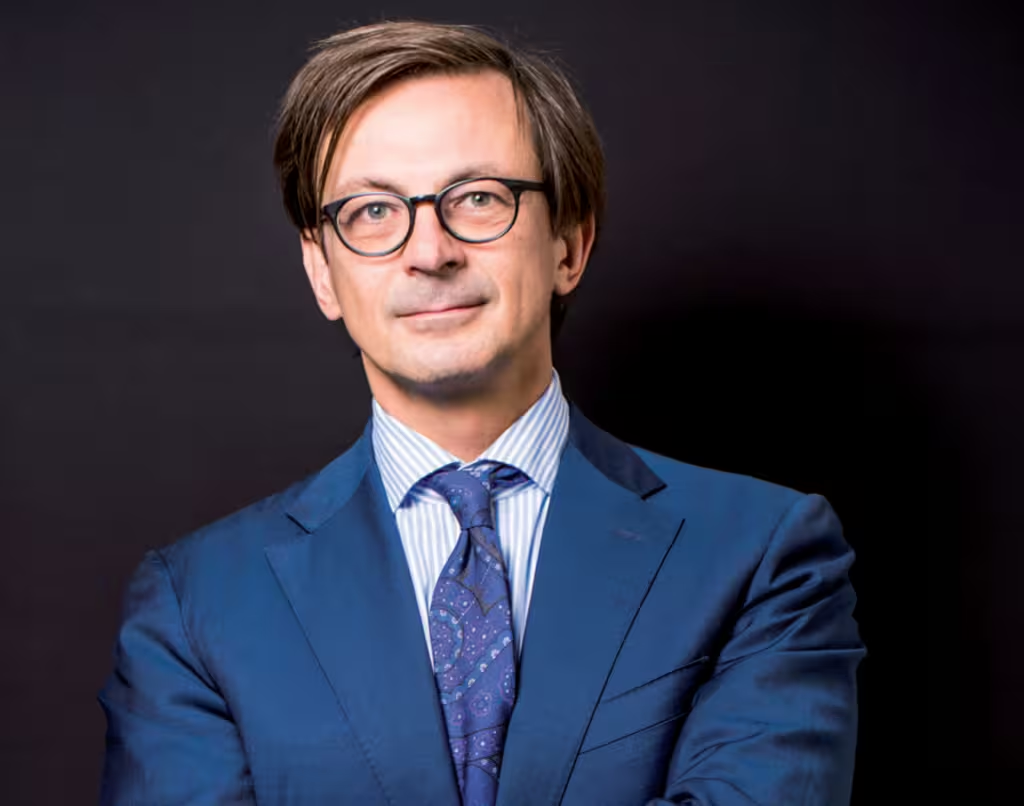The Vienna Science, Research and Technology Fund
supports numerous projects in many disciplines every year.

The WWTF has supported more than 550 projects with 265 million euros over the past 20 years. Michael Stampfer emphasizes how important it is to bring top researchers from a wide range of disciplines to Vienna and to keep local scientists in the city.
The WWTF's mission is to 'support outstanding research through competitive research funding'. What does this cumbersome formulation mean?
Michael Stampfer: There are basically two ways to fund research. Either you give a research group or an institution a basic budget in the justified expectation that something good will come out of it, because these are intelligent and ambitious people. A system that has too little basic budget is bad and wrongly set up. In addition, it is important to provide particularly good researchers and ideas with project-oriented money, both for thematic reasons and to encourage competition. This is what is known as competitive funding. We hold competitions for this purpose. There is an external body, namely international juries and experts, who compare the projects submitted.
Does this exclude purely academic projects that have no practical use?
rammer: No, because competitive only means that researchers have to compete against each other; that does not mean competitiveness in the sense of product development or anything like that. Where we pay attention to a kind of usefulness is the choice of topics. In relevant areas, such as biosciences and life science, we also finance very basic projects. These include population genetics, for example, or why the Goffin's cockatoo is the only non-mammal that can use entire tool sets to search for food. That won't drive Vienna forward as a business location tomorrow, but they are great projects.
One of the funding criteria is the outstanding nature of the projects submitted.
rammer: What is outstanding emerges in the context of such competitions, and two points must be kept in mind. Firstly, we would be doing our business completely wrong if we only financed the safe bet. Secondly, when in doubt, we want to support those scientists who are still on the verge of their breakthrough. Established top researchers naturally also receive money from us; they are not excluded.

Established researchers, for example in the field of AI, complain that there is too little funding in Austria ...
rammer: Yes, something is missing here, especially for the financing of the next generations - experienced researchers also need young doctoral students who then develop into scientists. We are very concerned that highly talented people achieve independence very early on and do not spend years working for someone in uncertain conditions, but can implement good ideas independently as early as possible. That is also one of our missions, to identify these people or, if they are not yet in Vienna, to bring them to the city and support them financially.
From the Goffin cockatoo to AI, isn't this a very broad field in which the WWTF supports projects?
rammer: We think long and hard about the areas in which we want to get involved, with life science being our biggest area of expertise. Here we also devote ourselves to clinical-translational research projects, which are also more result-oriented. Our call this year on the topic of synthetic biology is still a long way from applications. Our field of activity mainly covers three topics: We want to strengthen Vienna as a location for computer science, help to ensure that Vienna remains a strong life science location and use research to support cities in the environmental and climate sectors, on the one hand, to emit fewer emissions and become fitter, and on the other hand, to ensure that residents and the environment suffer less from climate change.
Especially in the IT sector, companies complain that there are too few skilled workers. Is there competition between the WWTF and the private sector when it comes to attracting the best minds?
rammer: Overall, there is quite a skills gap in computer science, and if we bring people here as researchers and teachers, we will strengthen and expand local training capacities. Local stars attract more talent from everywhere, and technology-intensive companies also like to go where there is a high level of expertise. We ourselves work closely with the Federation of Austrian Industries and individual companies, showing that we are researching things today that will be of interest to industry tomorrow. In terms of the number of talented people, things can get tight between universities and companies: if only a handful of people in the top segment in the field of machine learning complete their doctorates, they are in demand everywhere and can have a great career either in science or in industry. The competition for talent is of course even more brutal at an international level. There is a potential of tens of thousands of good and thousands of excellent doctoral students and postdocs in every specialization. We would like to have a small but significant proportion of them here. The fact that Vienna is a beautiful city is not enough. Attractive financial offers are needed, but there must also be enough money for research itself. In addition, the city has long lacked appeal because, on the one hand, the quality was lower than international standards and research at universities was spread across too many topics. So there was little reason for scientists to come to Vienna in particular. This has improved significantly in some areas, including computer science. In the life sciences, for example, there are many topics and institutions that, through their collaboration with one another, have an appeal that has an impact at least across Europe and sometimes worldwide. Computer science, on the other hand, was historically even more underfunded than the entire research system for many years. The star principle of generously buying a large number of young stars and letting them work in visible research centers and university facilities was neglected. This creates a pull that is already working well in the life sciences. This is still a drama at the moment, because digitization, AI and machine learning are changing all areas of science. We need to develop more appeal in this area and are making good progress in this regard.
Has the train already left the station for Vienna when it comes to digital issues?
rammer: When it comes to integrating machine learning into industrial value creation processes, the train has not left the station. The train for generative AI has left the station because a few American and Asian players have bought up everything. I am more concerned with the question of where the tracks lead in the fog and also with the fact that up to 80 percent of American university graduates in the field of machine learning go into industry and are not available for public research. Today, industry is doing basic research again, but the results are not being published. There is a lot of dark knowledge here.
How much has the emphasis shifted towards digitalization in recent years, or do you also consciously maintain analog areas?
rammer: There is a push and a pull. The pull is that we are getting more and more projects in the life science, cognitive or environmental research area that work with modeling, machine learning, remote sensing, etc., i.e. digital sensor systems and methods. Even if we were not active ourselves, this would constantly increase because we are funding more interdisciplinary research. The push effect is there because we consciously use half of our budget to finance digital projects. This could be a call like 'AI and ML in Medicine', which is in the life science focus, and that we want to bring as many young specialists as possible to Vienna or keep them in Vienna.
Why is digital humanism so important to you?
rammer: On the one hand, these are the dangers, and on the other, the beauty of our civilizing institutions. There is the rule of law and independent courts, the separation of powers, a government that can actively pursue politics, taxes can be levied on value creation, there is freedom of speech without a microphone listening in. All of these things are more threatened than we think by the mix of platform economy/Internet with machine learning and by the pursuit of greed and power. I don't want to sell transhumanist progress by saying that I can no longer go to independent courts in legal disputes because they are now automated and belong to the companies. Despite all the shortcomings of our democratic processes, I want to be able to vote without manipulation in ten years' time. For me, digital humanism means that computer scientists, on their way to reaching their goal as quickly as possible and building elegant, digital solutions, also think about the possible consequences of their actions right from the start.